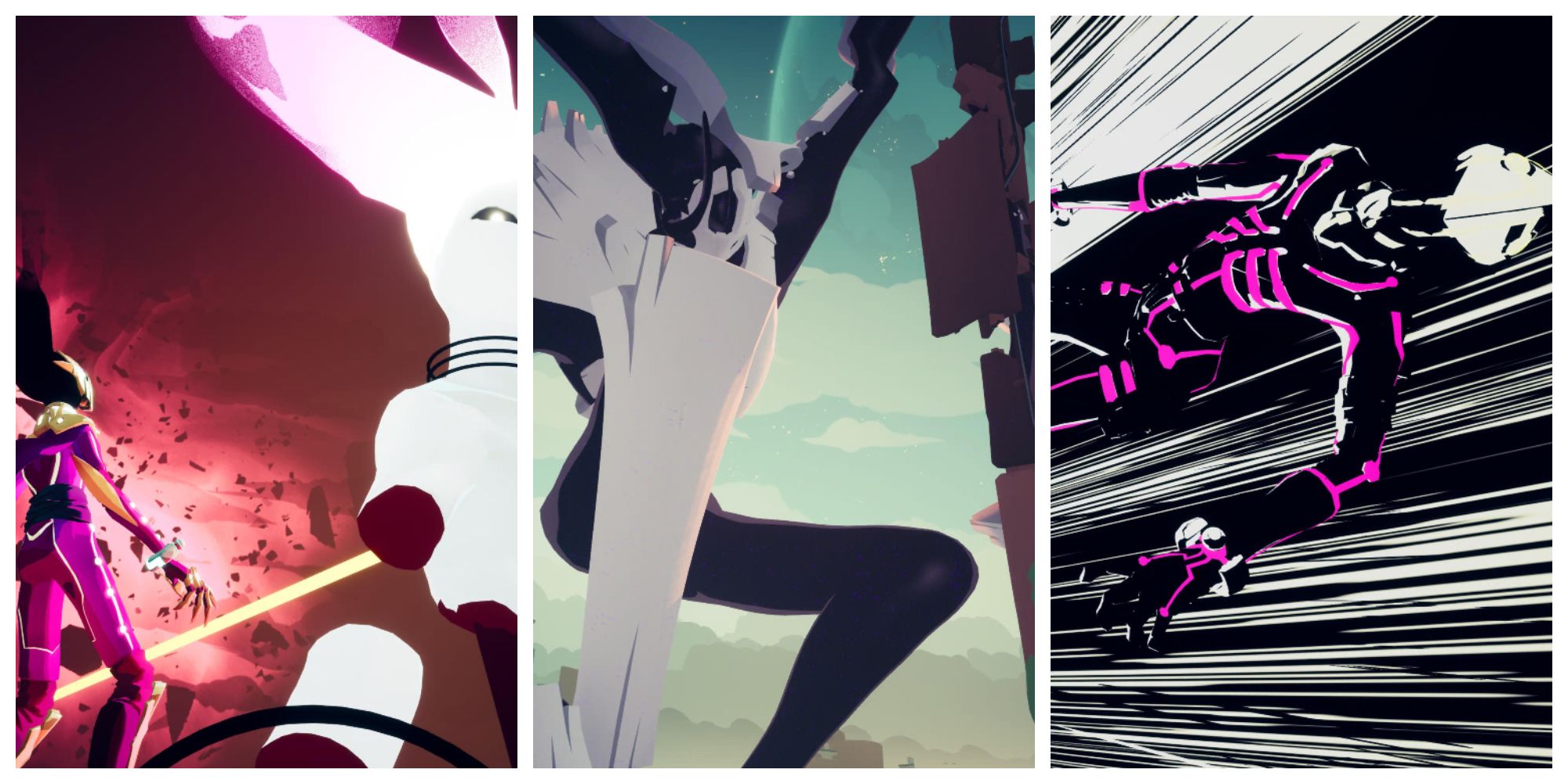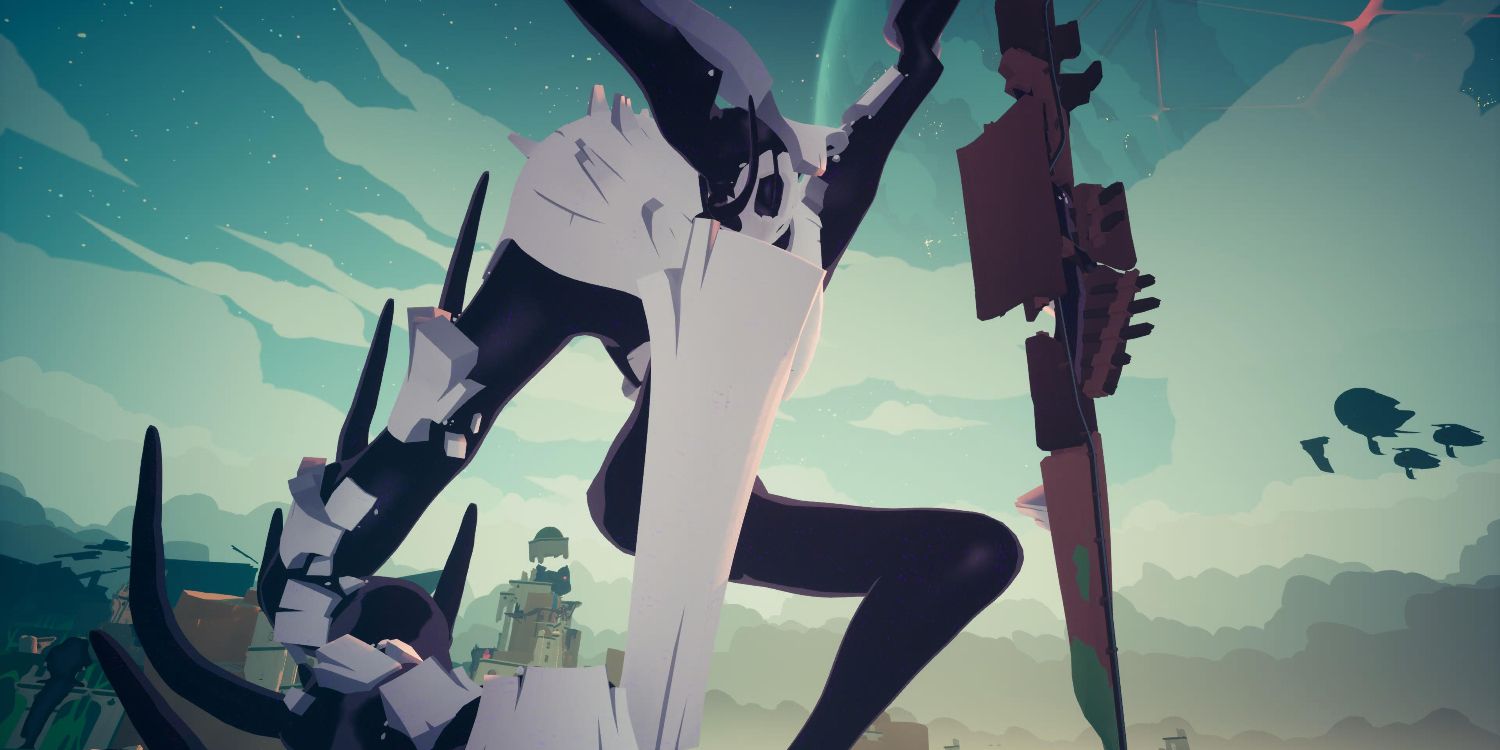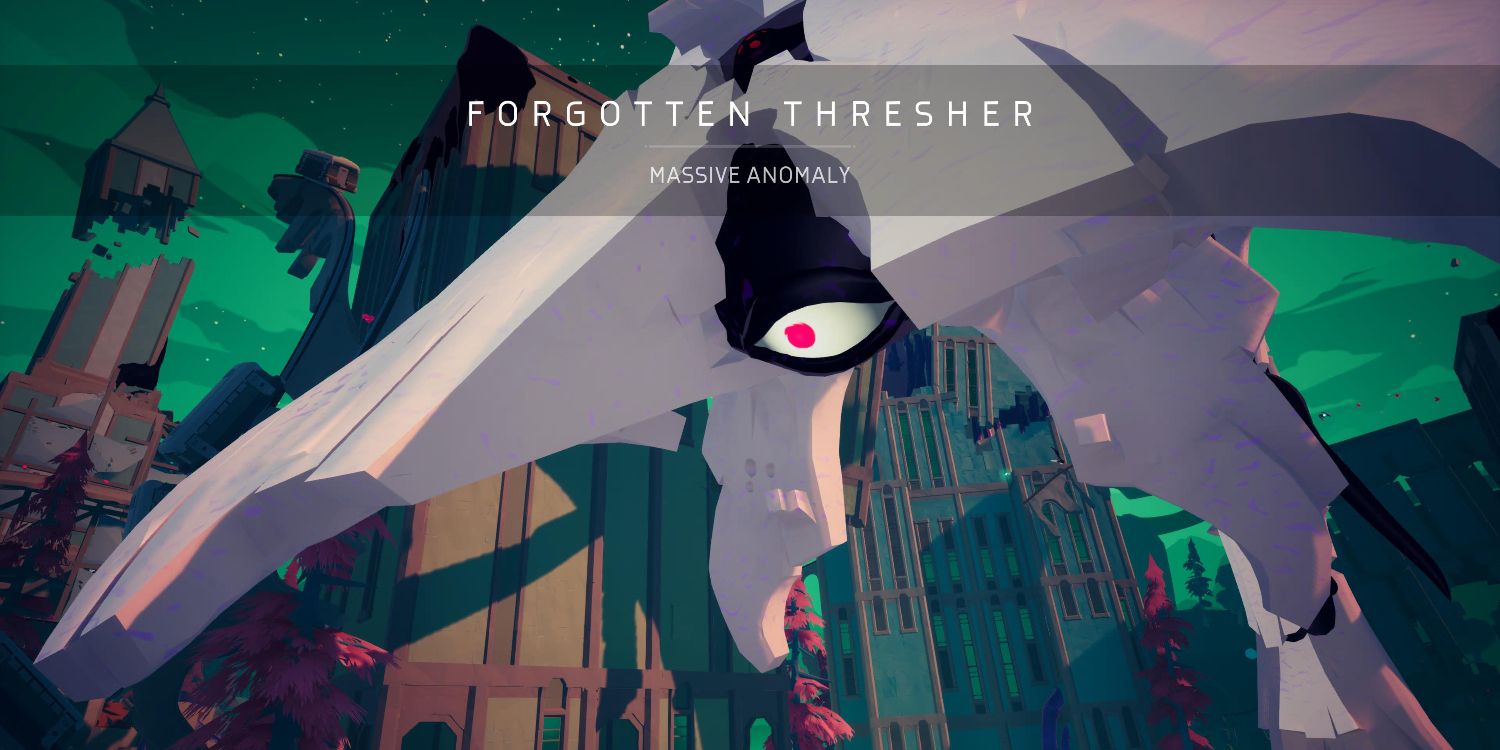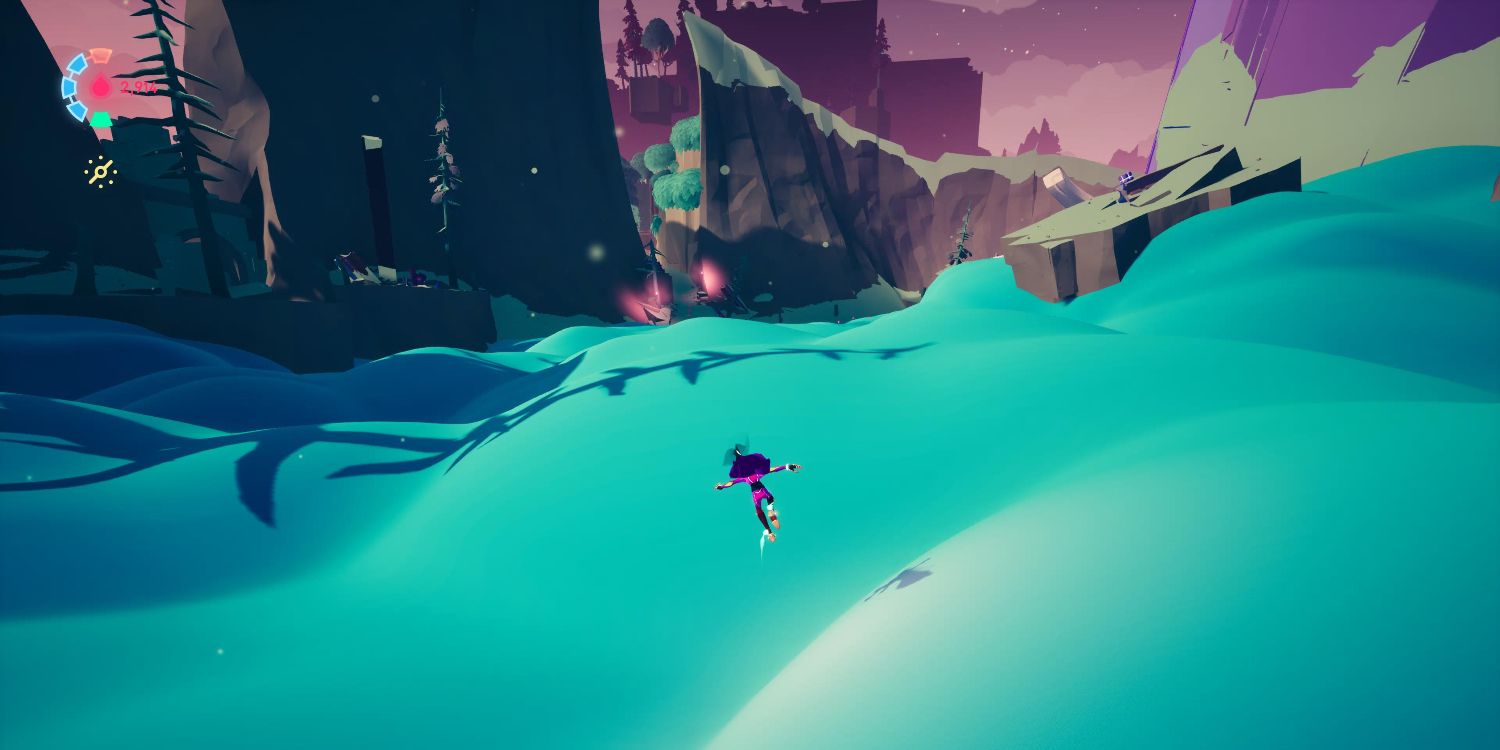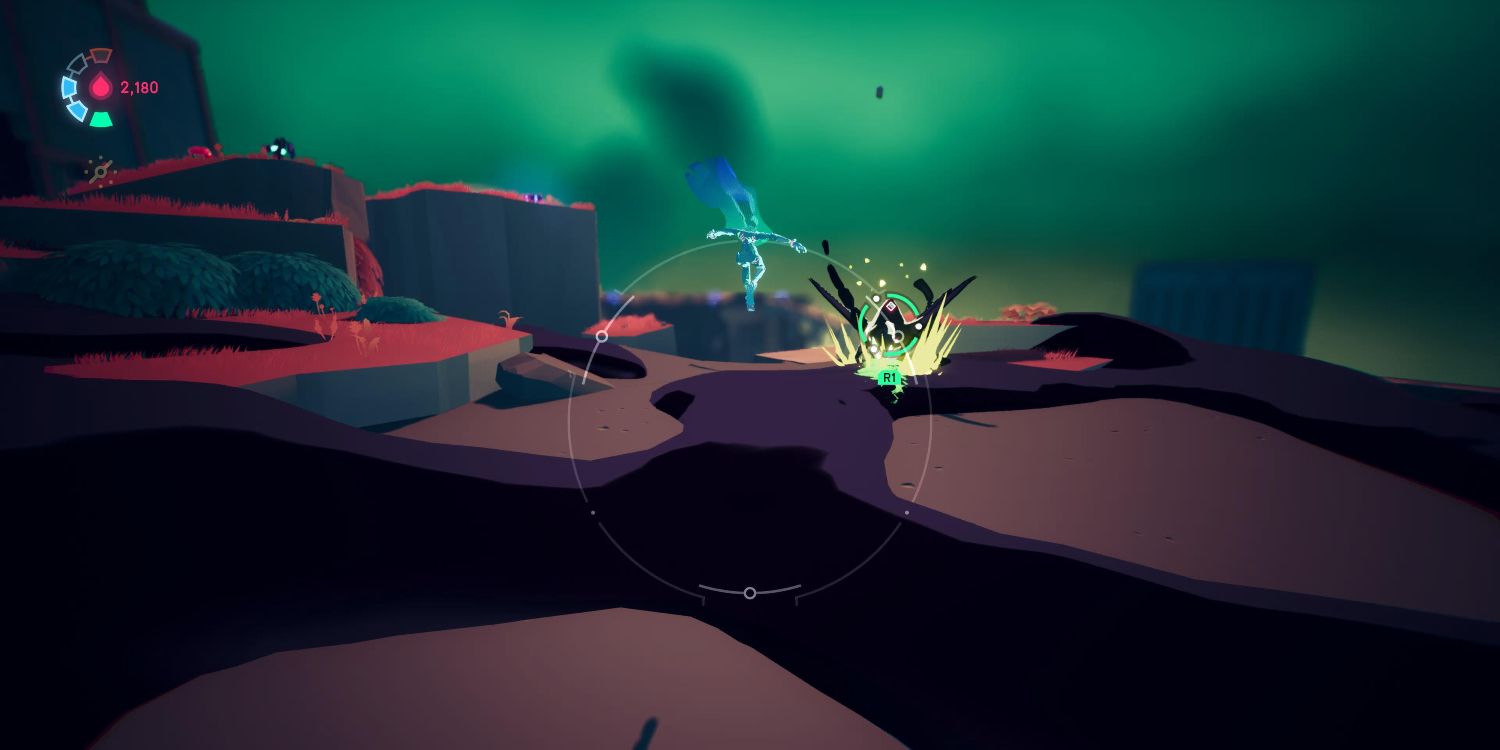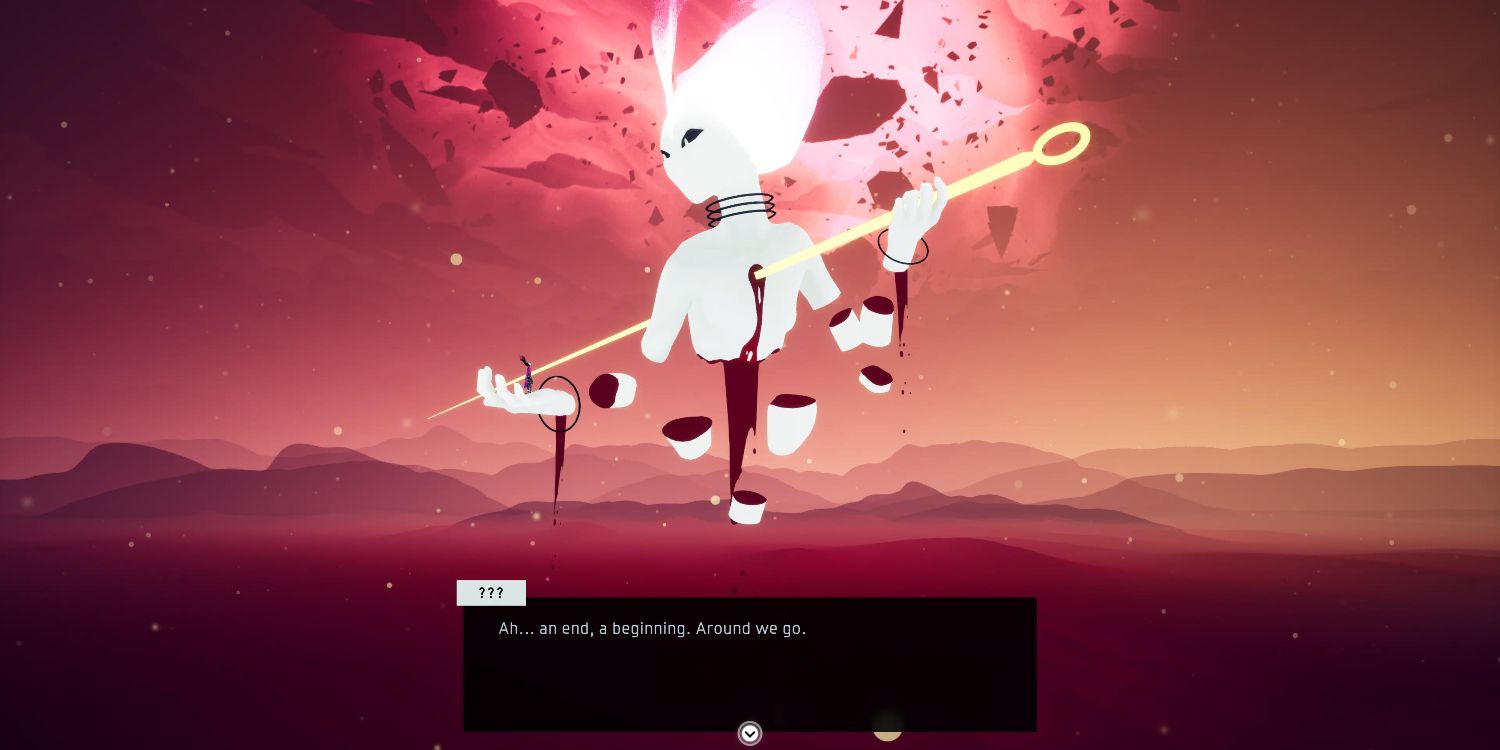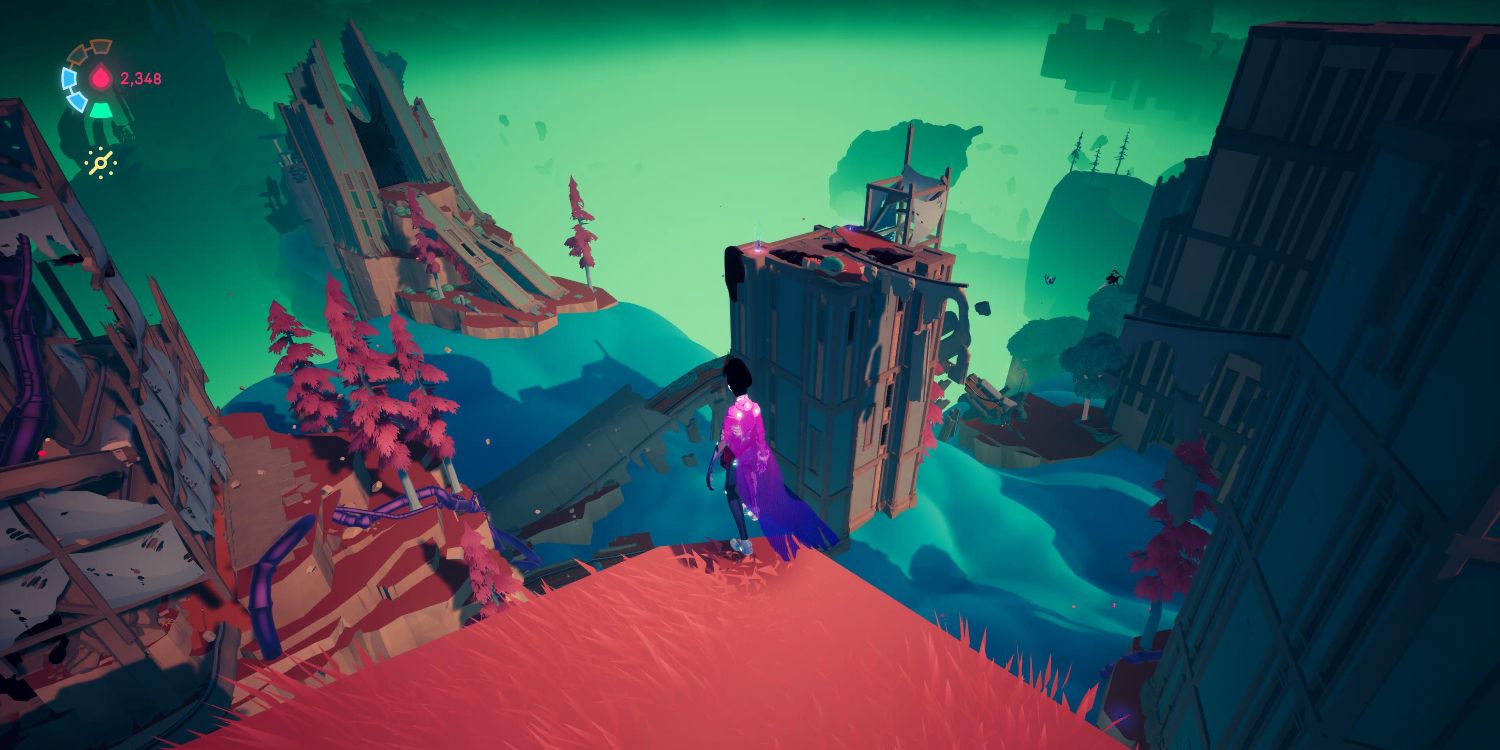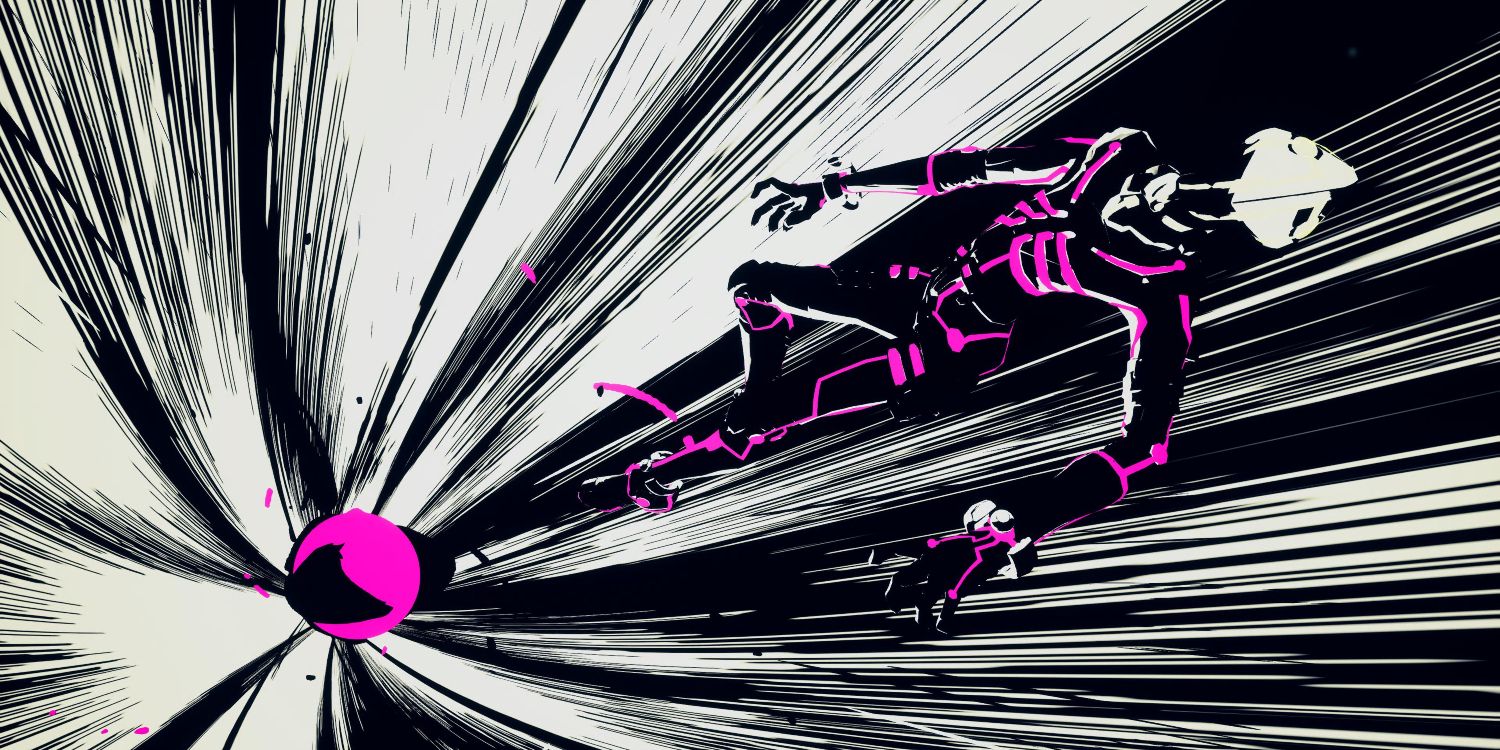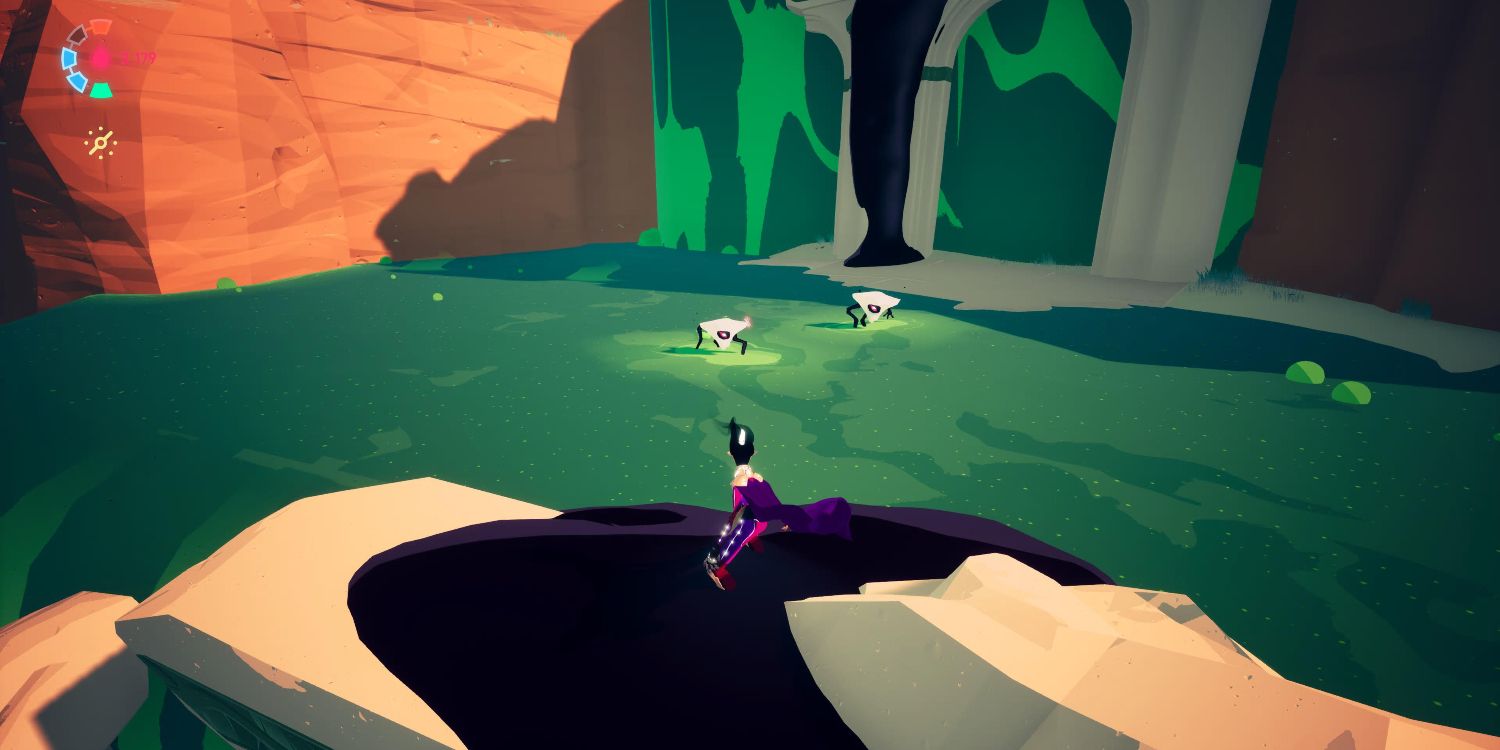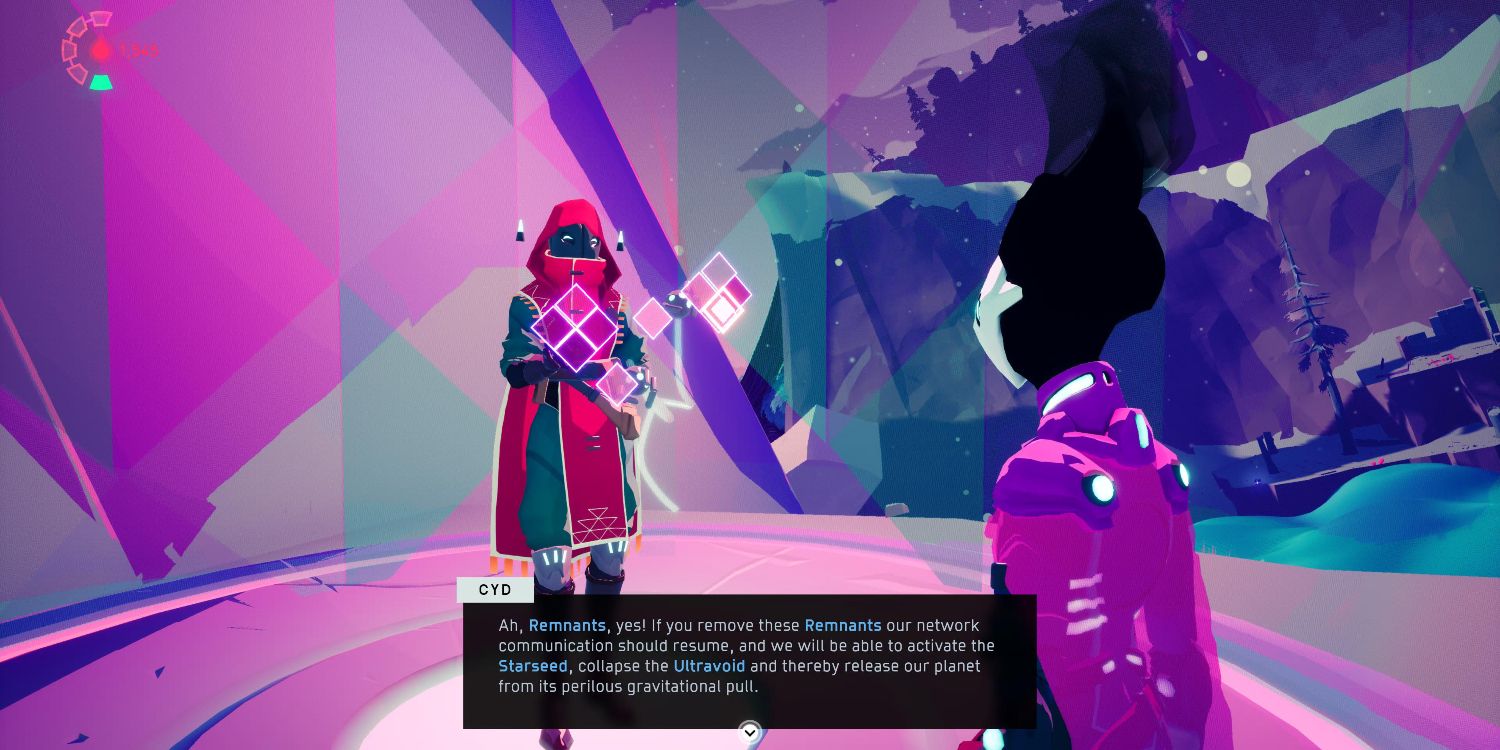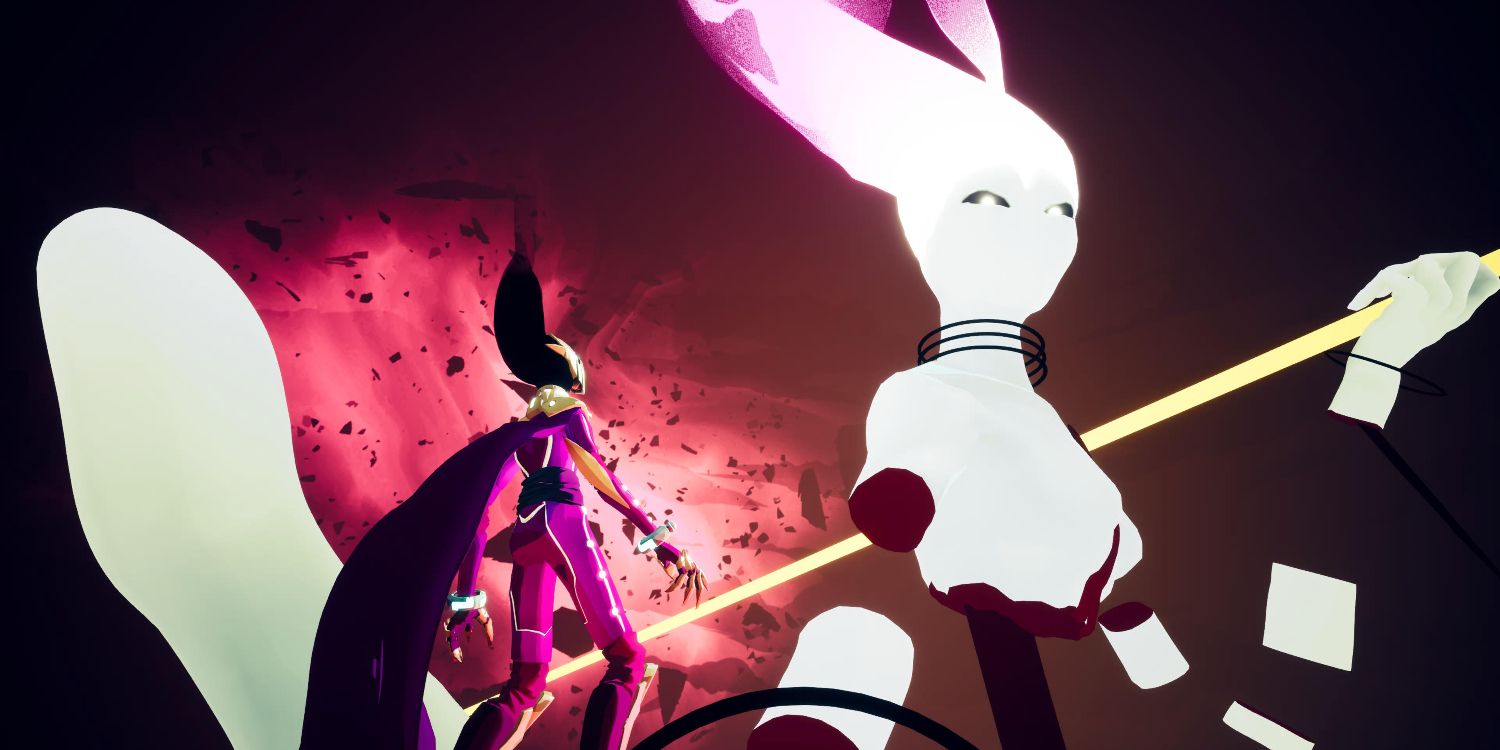Solar Ash is an exciting new adventure from the developer behind Hyper Light Drifter. The game takes players on a cosmic journey into a crazy and exciting environment. There's a lot to love about Solar Ash, from its breathtaking scope and artistic design to the intriguing story. Each of these elements feels well-thought-out and necessary, creating a fantastic experience.
That said, Solar Ash isn't without its flaws. While the majority of the game is enjoyable to play, it does stumble in a few, notable ways that can detract from the game as a whole. Here are some of the things to love about Solar Ash, and a few of the things that aren't quite as beloved.
10 Loved: Boss Battle Mechanics
Boss battles in Solar Ash are among the coolest in any video game to date, evoking the scale and ferocity of the colossi in Shadow of the Colossus. The main character, Rei, is forced to grapple onto the backs of fearsome beasts known as Remnants, and skate along their body while hitting various targets before finally dealing damage to them.
It's a frenetic dance that combines every mobility element the game has on hand, requiring pinpoint precision and careful timing to get just right. The satisfaction that comes with successfully taking down one of these bosses is one of the greatest feelings in gaming.
9 Didn't Love: Mobility Issues During Boss Battles
As discussed above, the boss battles in Solar Ash are among some of the best content in the game, but they can be a little too punishing when making an error or just not knowing what to do next. The challenge is part of the thrill, but the game's own mechanics can get in the way of that enjoyment.
The final stage of each boss requires extreme precision. Even one slip-up will result in having to start that stage all over, which can be frustrating when those slip-ups aren't a result of player error. When the main character's jump cuts all momentum, clearing large gaps becomes even more daunting than it should be.
8 Loved: Traversing The World
The main character of Solar Ash, Rei, is on a mission to explore a black hole known as the Ultravoid and find a way to stop it from destroying her home planet. To do that, she comes equipped with a set of specialized boots that allow her to skate across the surface of the Ultravoid's cloud terrain.
Moving through the Ultravoid feels like a dream, with Rei gliding smoothly from one area to the other. She can skate just about anywhere, and navigating the world of Solar Ash as a high-tech roller-skater is just as fun as it sounds. It helps that the world is designed to take advantage of Rei's abilities, and houses plenty of fun secrets to discover.
7 Didn't Love: Short Grappling Range
Alongside a set of specialized boots that allow her to skate through the Ultravoid, Rei also has the ability to grapple to specific points in the world as well as reach enemies from a short distance. While this ability comes in handy throughout the game, its normal range is punishingly short and not well-telegraphed.
The grapple does have an auxiliary ability that allows Rei to slow time down and extend the grapple's reach, but even in this mode it often feels too short. It would have been nice to remove the time-shifting ability altogether and just give the grapple a longer range on its own.
6 Loved: The Story
Solar Ash has one of the most intriguing stories of any game this year, offering plenty of mystery and compelling, well-established characters to encounter. Rei crashes into the Ultravoid unsure of what happened or where her team is. Over time, players can unravel the mysteries of the Ultravoid and the civilizations it has destroyed through side quests and journal entries.
Players can also dive deeper into the culture and society of Rei's planet and learn about the origins of her mission as well as where the rest of her team has gone. There are many different story threads to pull on, and each one is just as intriguing as the last.
5 Didn't Love: Uneven Level Design
While many of the regions in Solar Ash feel intentionally designed to make the most of Rei's abilities as a Voidrunner, they don't all succeed to the same degree. Some areas feel very well-designed and easy to navigate, while others are stingy with healing options and don't offer clear indicators for how to progress.
One of the earlier areas, the Broken Capital, is a good example of this. While the region is fun to explore at first, its emphasis on verticality can get tiring after falling over and over, and struggling to find the unmarked shortcut back to the upper levels. It also doesn't have many healing boxes on the ground level, which becomes a more pressing problem during the area's boss battle.
4 Loved: The Art Direction
Solar Ash is a breathtaking feat of open-world game design, featuring some of the most striking vistas and eye-catching environments in gaming. Each region of the Ultravoid boasts a unique aesthetic so visually distinct from the last, that it can be hard to believe they exist in the same game.
The Broken Capital, for example is a gray, bombed-out metropolis that appears to be sinking into the cloud surface it rests on, while the Eternal Garden is a gloomy, overcast plant kingdom with a haunted-looking cathedral in the dead center. The game is so regularly jaw-dropping that it's a shame it doesn't have a photo mode.
3 Didn't Love: Limited Combat Options
It feels so good to move through the world of Solar Ash that getting into combat encounters almost always feels like a chore. Rei doesn't have much in the way of combat capabilities; she mostly just swings around a bladed energy weapon that can take out most enemies in a few hits.
There's also no dedicated ranged combat option; instead, there's a combat application for the grapple shot that pulls Rei in close to the targeted enemy for a quick slash attack. Add on to all of this that defeating enemies doesn't offer any kind of tangible reward, and combat ends up feeling like an obstacle to the fun part of the game.
2 Loved: Voice Acting
It's a surprise that Solar Ash has voice acting at all, since Heart Machine's previous title, Hyper Light Drifter, didn't even feature legible text. But not only is there a lot of voice acting in the game, but it's all very enjoyable.
Rei is voiced by Fryda Wolff, who turns in a wonderfully layered performance despite the effect placed on her voice to make her sound like she's talking through a space helmet. Rei's interactions with Cyd, voiced by Pilar Uribe, often feature powerful emotions that both voice actors pull off with aplomb.
1 Didn't Love: Losing Maximum Health
When playing through an open-world adventure game like Solar Ash, many players expect to make improvements to their character over time that make traversal and combat easier. However, Solar Ash doesn't offer much in the way of unlockable upgrades, instead opting to punish players every time they defeat a boss.
The strange, ethereal being known as Echo crushes one of Rei's health units after each boss encounter, reducing her maximum health by one until she can collect enough plasma to repair it. Video games usually reward the player for triumphing over a difficult enemy, so receiving punishment for it feels incongruous to the video game experience.

